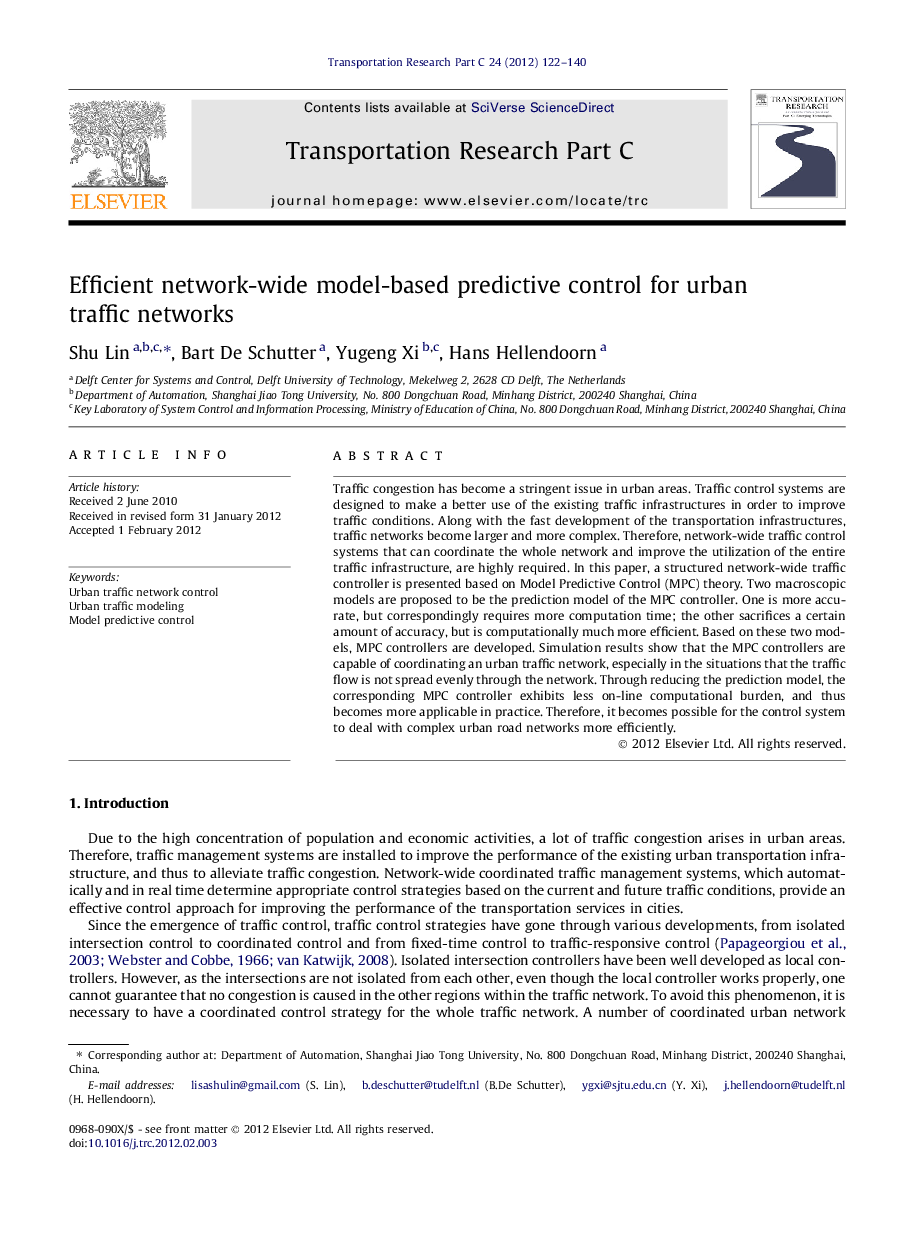| Article ID | Journal | Published Year | Pages | File Type |
|---|---|---|---|---|
| 525293 | Transportation Research Part C: Emerging Technologies | 2012 | 19 Pages |
Traffic congestion has become a stringent issue in urban areas. Traffic control systems are designed to make a better use of the existing traffic infrastructures in order to improve traffic conditions. Along with the fast development of the transportation infrastructures, traffic networks become larger and more complex. Therefore, network-wide traffic control systems that can coordinate the whole network and improve the utilization of the entire traffic infrastructure, are highly required. In this paper, a structured network-wide traffic controller is presented based on Model Predictive Control (MPC) theory. Two macroscopic models are proposed to be the prediction model of the MPC controller. One is more accurate, but correspondingly requires more computation time; the other sacrifices a certain amount of accuracy, but is computationally much more efficient. Based on these two models, MPC controllers are developed. Simulation results show that the MPC controllers are capable of coordinating an urban traffic network, especially in the situations that the traffic flow is not spread evenly through the network. Through reducing the prediction model, the corresponding MPC controller exhibits less on-line computational burden, and thus becomes more applicable in practice. Therefore, it becomes possible for the control system to deal with complex urban road networks more efficiently.
► A reduced macroscopic urban traffic model was proposed. ► The continuous-time delay of the link model was sampled into discrete-time delay. ► The new model obtained a good trade-off between accuracy and computational complexity. ► The network control performance was improved by the model-based predictive controller. ► The on-line optimization speed of the controller was also increased.
